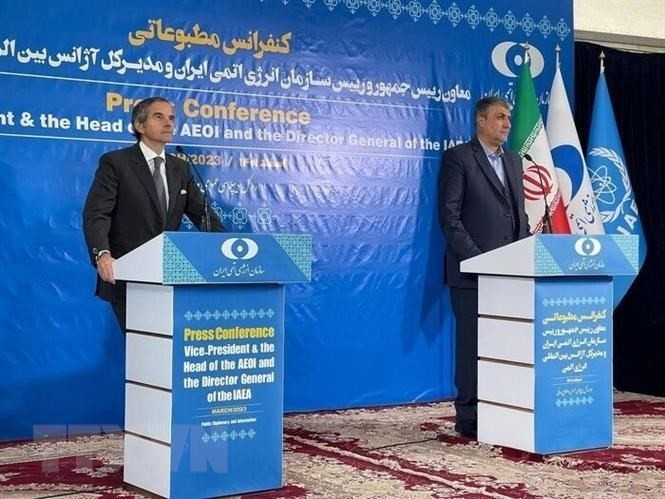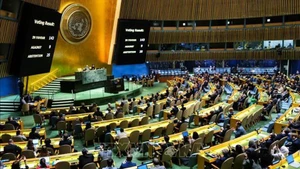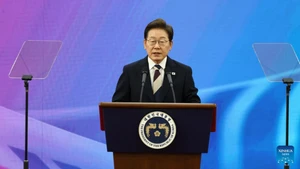Grossi arrived in Iran on March 3, to strengthen cooperation between the IAEA and Tehran, on the country's nuclear activities. On March 4, the IAEA’s Director General met with Iranian leaders and said that the two sides had constructive talks. Accordingly, Iran agreed to reconnect the surveillance cameras at its nuclear sites and increase the pace of inspections. He also expressed satisfaction with his visit to Tehran and the cooperation with Iran. He stressed Iran and the IAEA should continue high-level cooperation to strengthen their bilateral relations. This is very important, especially as the parties work towards the possibility of restoring the 2015 Iran nuclear agreement, formally known as the Joint Comprehensive Plan of Action (JCPOA).
On the Iranian side, President Ebrahim Raisi expressed his hope that the IAEA would not be influenced by major powers. During his meeting with Grossi, the Iranian President also mentioned the use of nuclear technology in the industrial, agricultural and medical fields, stressing that this technology is now very important to people's lives. Meanwhile, the Head of the Atomic Energy Organisation of Iran (AEOI) Mohammad Eslami, has also said the regulation of the two sides' relations based on safety agreements, helped the IAEA be assured of Iran's nuclear activities and prevent any disagreement or conflict.
In addition, the AEOI and the IAEA agreed that the IAEA should attend the 30th Iranian Nuclear Conference, to better know the country's nuclear programme, as well as the capabilities of Iranian scientists. Mohammad also stressed that the exchanges between Tehran and the IAEA should be aimed at building trust, and both sides should limit external interference, to facilitate cooperation and maintain reliable exchanges, to address problems.
The cooperation between the agency and Tehran and the good agreement that the two sides are expected to reach will contribute to the JCPOA's revival.
Iran and world powers signed the JCPOA in July 2015, under which Tehran accepted some restrictions on its nuclear programme, in exchange for the lifting of sanctions. However, the US withdrew from the agreement in May 2018 and re-imposed unilateral sanctions, prompting Tehran to reduce some of its nuclear commitments under the deal.
The talks on the JCPOA's revival began in April 2021 in Vienna, but no breakthrough has been achieved after the latest round of talks in August 2022.
Before Iran and the IAEA made new progress in the above-mentioned bilateral relations, the IAEA repeatedly accused Tehran of lacking cooperation with the agency.
In November 2022, the IAEA passed a resolution calling on Iran to enhance collaboration in the alleged "traces of uranium" at a number of its "undeclared" sites. The IAEA also criticised Iran for making an undeclared change to the interconnection between the two clusters of advanced machines, enriching uranium to up to 60% purity, close to weapons grade, at its Fordow plant.
In February, the US, Britain, France and German, issued a joint statement agreeing with the IAEA's report that Iran was inconsistent in meeting its obligations, under the Non-Proliferation of Nuclear Weapons, commonly known as the Non-Proliferation Treaty or NPT.
Meanwhile, Iran issued a statement opposing the position of the IAEA, rejecting the accusations and asserting the "peaceful nature" of Tehran's nuclear programme.
In addition to the fierce "war of words" between the two sides, the US and Western allies have poured on Tehran a series of sanctions related to the fields of transportation, logistics, finance, oil exports, etc. These sanctions have strangled Iran's economy in recent years. Therefore, the improvement of relations between Iran and the West, first of all between this country and the IAEA, not only opens the prospect of restoring the JCPOA to ensure world peace but also opens up opportunities for the development of Iran's economy, as well as significantly increase the supply of energy from this country to the global economy.
















